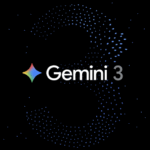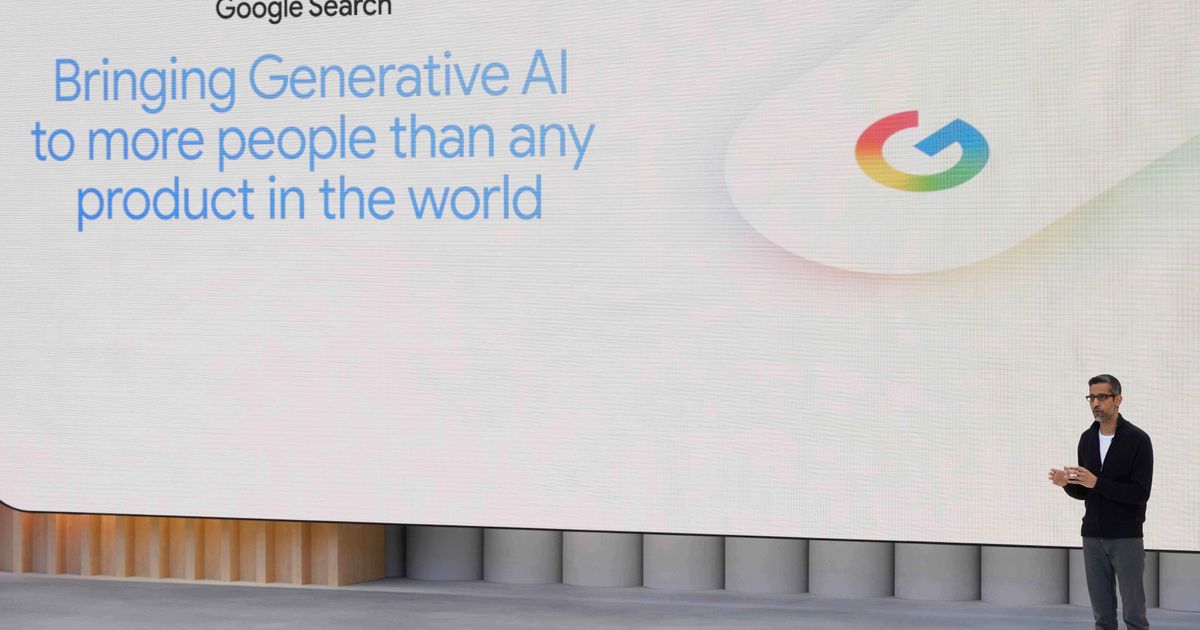SAN FRANCISCO (AP) — In a bold move to enhance its services, Google has announced the rollout of its Gemini 3 artificial intelligence model, integrating it into its widely used search engine and other online platforms. This next-generation model comes nearly two years after the introduction of its predecessor, designed in response to the competitive disruption posed by OpenAI’s ChatGPT, which debuted in late 2022 and is widely regarded as a pivotal moment in the tech landscape, akin to the launch of the iPhone in 2007.
The initial rollout of Gemini 3 will be available to subscribers of Gemini Pro and Ultra in the United States before expanding to a global audience. Among its new features is an AI “thinking” capability embedded within Google’s search engine, which executives believe will serve as an essential tool to boost productivity and creativity for users. “We like to think this will help anyone bring any idea to life,” stated Koray Kavukcuoglu, a Google executive overseeing Gemini’s technology.
However, the increasing sophistication of AI models has raised concerns about their potential to mislead users and influence emotional well-being. In severe cases, AI chatbots have been criticized for inappropriate responses, leading to negligence lawsuits against developers. While Gemini 3 has not yet faced legal challenges of this nature, Google asserts that it has implemented protective measures to prevent the model from generating misleading information or being exploited for harmful activities, such as hacking.
The design philosophy behind Gemini 3 emphasizes clarity, aiming to provide responses that are “smart, concise and direct,” as stated by Kavukcuoglu and Demis Hassabis, CEO of Google’s DeepMind division. Instead of flattering users, Gemini 3 is engineered to offer insights that enhance understanding and decision-making.
As Google invests significantly in AI, its corporate parent, Alphabet, is poised to see Gemini 3 as a key indicator of whether its substantial financial commitments will yield returns. The company raised its capital expenditure budget from $91 billion to $93 billion, with the majority allocated towards AI advancements. Competing tech giants like Microsoft, Amazon, and Meta Platforms are also pouring similar levels of investment into AI initiatives this year.
Investor sentiment toward AI spending remains largely positive, as evidenced by Alphabet’s current market valuation, approximately $3.4 trillion, which has more than doubled since the initial Gemini’s rollout. Following the announcement of Gemini 3, Alphabet’s shares experienced a slight uptick.
Nonetheless, this soaring valuation has prompted concerns regarding a potential investment bubble that could destabilize the broader stock market. For the time being, the momentum in AI technology continues to build.
In August, OpenAI launched its fifth generation of the technology underpinning ChatGPT, coinciding with the release of the next version of Claude from Anthropic. Both ChatGPT and Claude have become adept at addressing intricate queries, positioning themselves as viable alternatives to conventional search engines.
In combating this emerging competition, Google has integrated Gemini’s capabilities into its search functionalities, introducing features like detailed summaries termed “AI Overviews” in 2023, and a more conversational search mode earlier this year. These innovations have resulted in a shift in how Google ranks search results, a change that has drawn criticism from online publishers who claim it jeopardizes their traffic and revenue from digital advertising.
Currently, AI Overviews are utilized by over 2 billion users monthly, while the Gemini app boasts around 650 million monthly users. With the introduction of Gemini 3, the search engine’s AI mode is also set to add a new feature allowing users to select a “thinking” option that promises to deliver even deeper insights. Initially, this feature will only be accessible to Gemini Pro and Ultra subscribers, although Google plans to extend it to a broader audience in the future.
See also Feroot Secures $14M to Enhance AI-Driven Compliance for Websites and Apps
Feroot Secures $14M to Enhance AI-Driven Compliance for Websites and Apps Panel Discussion on AI’s Impact on Education and Well-Being Set for December 9, 2025
Panel Discussion on AI’s Impact on Education and Well-Being Set for December 9, 2025 Amazon’s Rufus AI Assistant Surges 149% in Users with Major Feature Updates
Amazon’s Rufus AI Assistant Surges 149% in Users with Major Feature Updates Agentic AI Characters Redefine Gaming: Brands Face New Ownership Dilemmas
Agentic AI Characters Redefine Gaming: Brands Face New Ownership Dilemmas Google Launches Gemini 3, Enhancing Search with Advanced Multimodal AI Features
Google Launches Gemini 3, Enhancing Search with Advanced Multimodal AI Features



































































